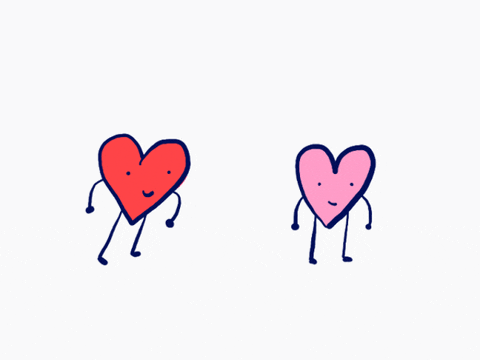What makes a silly love song?
Plus, how lonely people see the world
“I wanted the kids at the top of the hierarchy to think I was one of them, rather than one of those guys at the bottom of the hierarchy.” –psychologist Elliot Aronson
BRAIN WAVES
Silly love songs. In a new study, researchers asked people around the world – including very small, isolated communities – to listen to snippets of different songs in different languages and identify their genre. Were they dance songs, lullabies, healing music, or love songs? Across the board, people were really good at identifying dance music and lullabies. They were also pretty good at identifying healing music. But they really had trouble with the love songs. “One reason for this could be that love songs may be a particularly fuzzy category that includes songs that express happiness and attraction, but also sadness and jealousy,” said lead author Lidya Yurdum. Think you know your love songs? Test yourself here.
Only the lonely. Loneliness affects us in ways we might not even realize. It increases the risk of heart disease and heart failure, for example. A recent study suggests that lonely people also process the world differently. In the study, participants were asked to complete the UCLA Loneliness Scale, a survey that measures a person’s feelings of loneliness and social isolation. Their brain patterns were then tracked while they watched different types of videos – everything from music to sports to party scenes. “People who suffer from loneliness are not only less similar to society’s norm of processing the world, but each lonely person differs in unique ways, as well,” reported SciTechDaily. Because lonely people have a hard time even finding similarities with each other, this could further reinforce their social isolation, said researcher Elisa Baek. The solutions aren’t easy, but some have ideas about how to fix the problem of loneliness.
Compassion. Do you beat yourself up over mistakes? Are you constantly on a journey to self-improvement? It might be time for a little self-compassion. Listen to learn more.
ON THE HIDDEN BRAIN PODCAST
Outsmarting Yourself: After we make a decision, we often tell ourselves a story about why our choice was the right one to make. It’s a mental process that psychologist Elliot Aronson calls self-justification. These rationalizations can sometimes lead us to excuse bad behavior or talk ourselves out of a poor choice. But are there also times when self-justification can be used for good?
ON THE MY UNSUNG HERO PODCAST
Hal Hershfield’s Story: A simple act of generosity from a coffee shop barista helped Hal feel like he was finally a part of his community.
Don’t forget to send us the story of your unsung hero! Record a voice memo on your phone and email it to myunsunghero@hiddenbrain.org.
ON HIDDEN BRAIN+
Your Questions Answered: Laura Carstensen on Aging: Are older people happier than their middle-aged or younger counterparts? Stanford psychologist Laura Carstensen, who studies aging, says research suggests the answer is yes. Laura joined us recently to talk about this surprising finding in an episode called "The Best Years of Your Life." Today, she returns to the show to answer listeners' questions and share more of her research on what it means to live well as we age.
Have you tried out Hidden Brain+ yet? You can find it by searching for our show in the Apple Podcasts app, or by going to apple.co/hiddenbrain.
FROM OUR LISTENERS
MIND GAMES
If you multiply this number by any other number, the answer will always be the same. What number is this?
LAST WEEK’S PUZZLE
I add 5 to 9 and get 2. What am I?
The answer: A clock. When it is 9 a.m., adding 5 hours would make it 2 p.m.
A MOMENT OF JOY
You didn’t know you needed it on your bucket list: cuddling a cow.
Have an idea for Hidden Brain? A story you want to share with us? Send an email to ideas@hiddenbrain.org. Listen to us on Spotify, Apple, Amazon Music or your favorite podcast platform.



